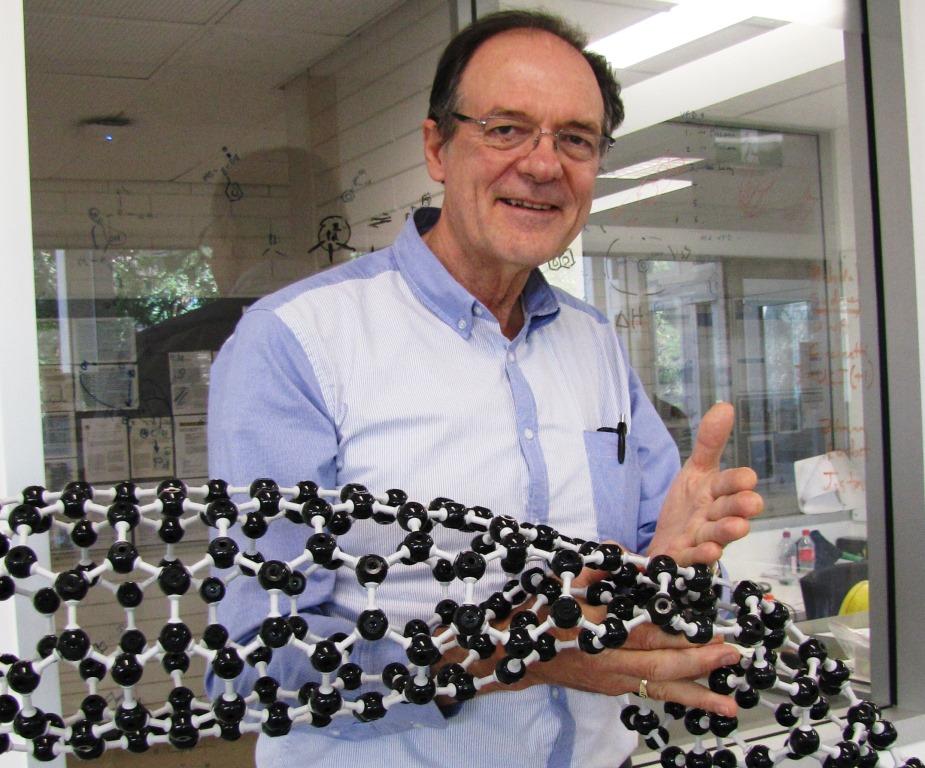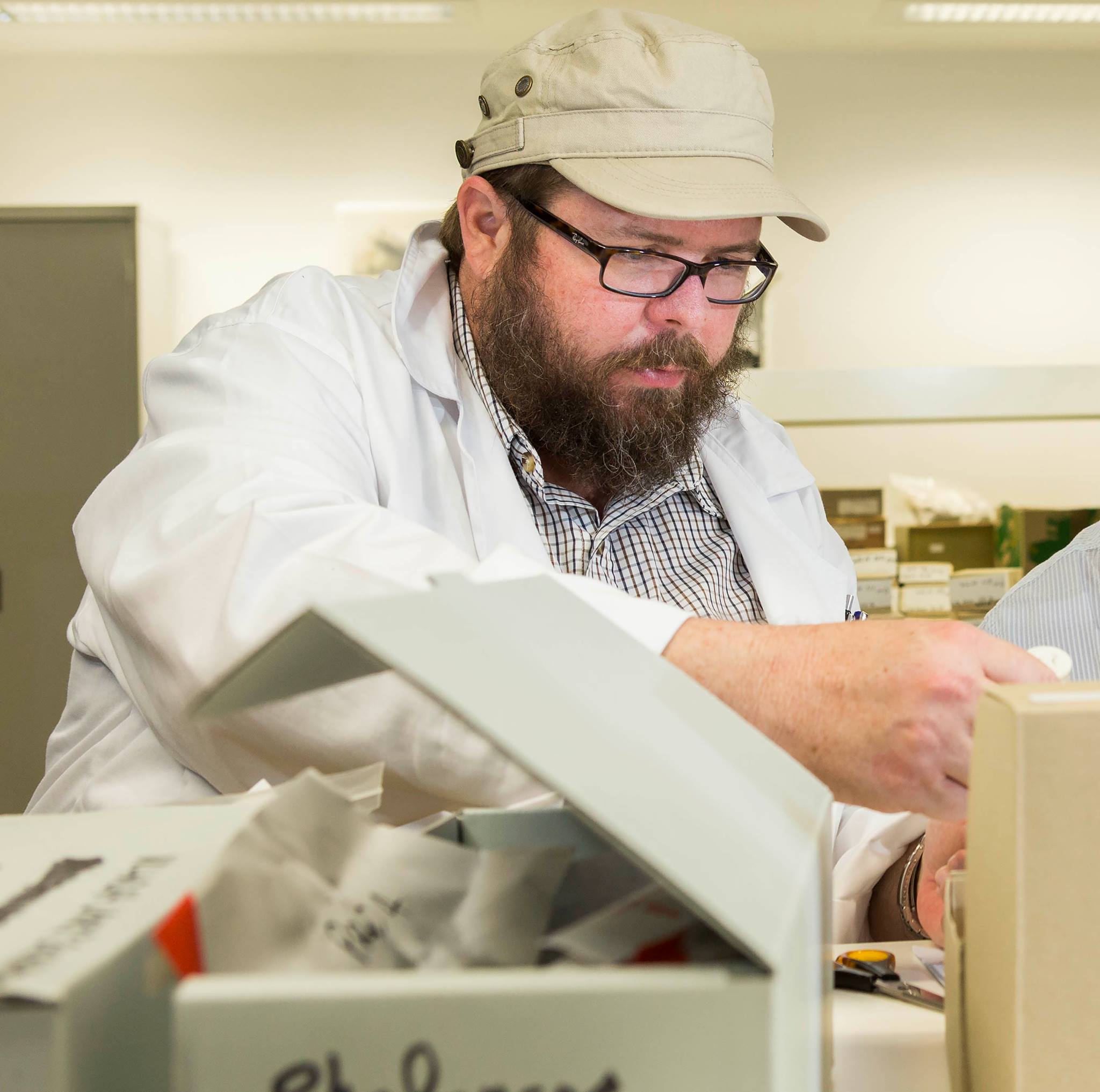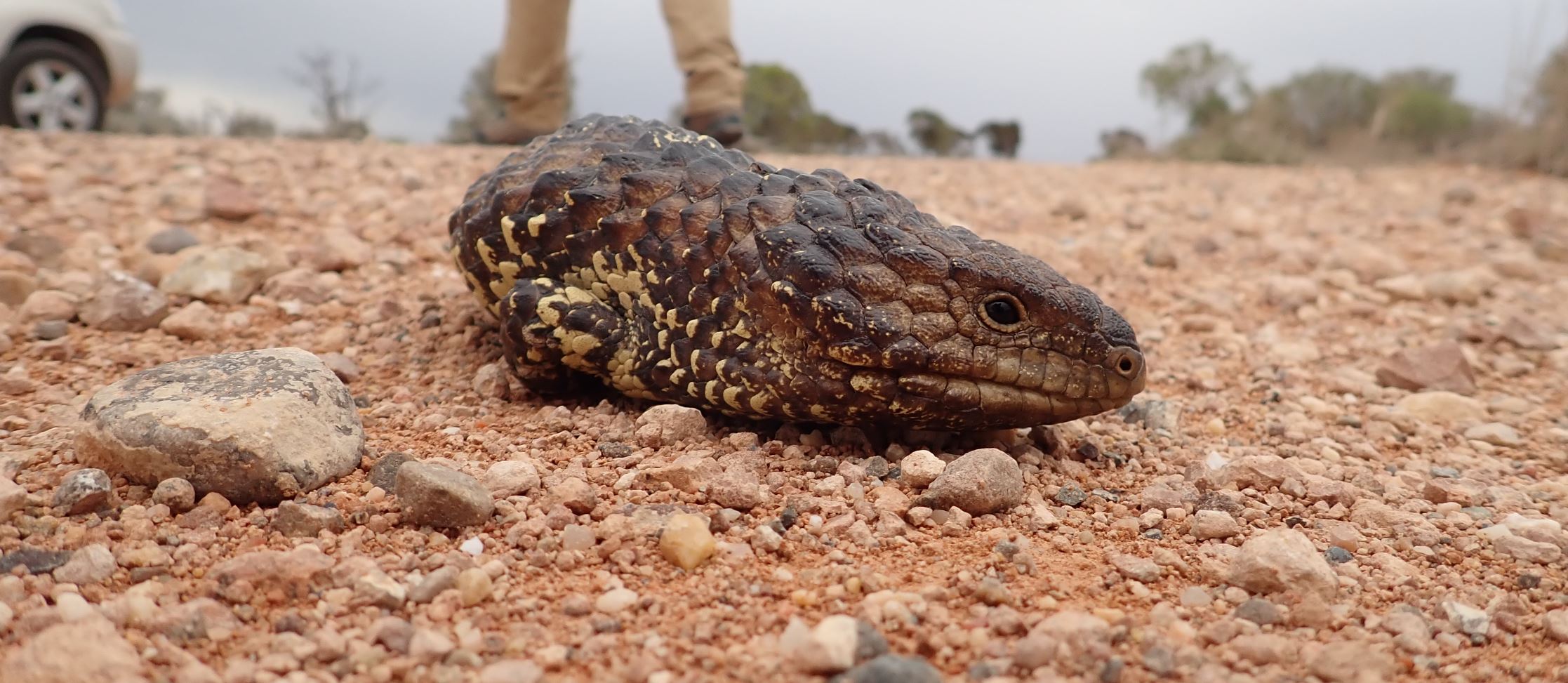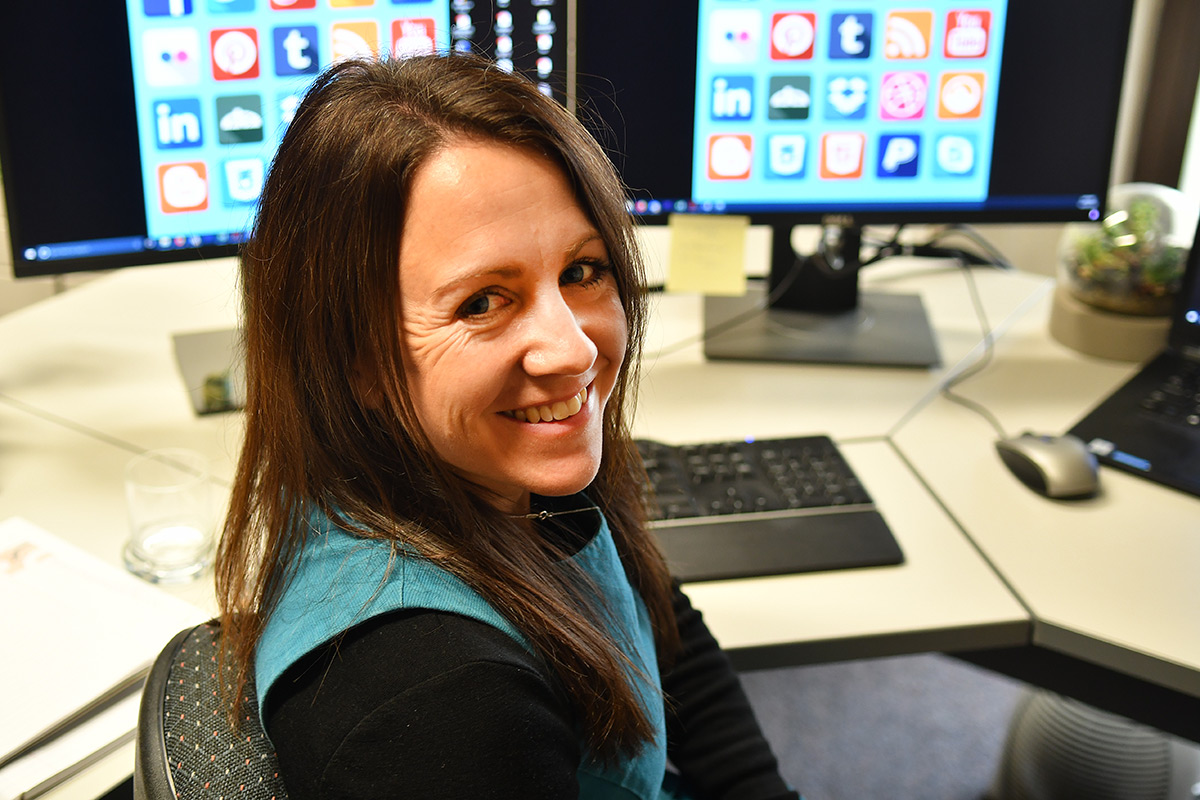
Major new research at Flinders University will help start new industries, including new products and clean technologies to remove toxic waste, and delve into Australian history and ecology and evolution to solve contemporary and future problems.
Flinders has been successful in securing eight new ARC Discovery Projects, with $3.83 million in total funding over the next three years.
Professor of Clean Technology Colin Raston, from the College of Science and Engineering, will lead two projects to bring revolutionary new materials processing closer to industrial production.
Ground-breaking research at the Flinders Institute for NanoScale Science and Technology will also see organic chemist Dr Justin Chalker secure funding to explore new strategies in recycling, additive manufacturing, and sustainable mining.
And ARC DECRA researcher Dr Daryl Wesley, with colleagues from the College of Humanities, Arts and Social Sciences, is coordinating a major new archaeology project with Tiwi Islanders, seeking to “write a new chapter of Australian history”.
Professor Robert Saint, Deputy Vice-Chancellor (Research) at Flinders, says: “It’s extremely pleasing to see Australian Research Council award Discovery Project funding for some of our most outstanding researchers, to apply their internationally-recognised expertise to key areas of chemistry and physics, archaeology, anthropology, palaeontology and psychology.
“This funding will make a difference in a number of important areas, including sustainable solutions to environmental and conservation challenges, and a better understanding of how Australia is developing as a nation,” Professor Saint says.
Flinders University’s Raston Laboratory is a world leader in developing revolutionary new methods with a patented sustainable thin film microfluidic device to process and manufacture next-generation nanotech materials, including carbon nanotubes.
Professor Raston says the Flinders vortex fluidic device (VFD), capable of partially ‘unboiling an egg’ and cutting carbon nanotubes – the “strongest material available” – will be used in both new Discovery Projects, to commence in 2020.

“The device has exciting applications in continuous manufacturing in a processor no bigger that a coffee cup,” Professor Raston says. “The device is cheaper than conventional ways of processing because of the small footprint, and it is sustainable.”
One project is to fabricate new forms of carbon in the VFD, which includes using electric and magnetic fields to control their properties.
“This will position Australia for replacing toxic and depleting metals with carbon in device technology,” Professor Raston says.
The other Discovery Project will use the VFD to build pharmaceutical molecules in ways that eliminate the formation of waste and avoid the use of toxic reagents.
“Existing industries can be transformed, and new industries created – exciting possibilities,” says Professor Raston, who adds the grants allow for valuable research collaborations with other universities in Australia and overseas to help train the next generation of scientists.
In this vital new frontier of green chemistry, the Chalker Research Lab at Flinders is progressing field trials and commercial translation of polymers made from industrial waste products such as sulfur. These materials have shown great potential as recycled rubber, plastics and glass, with valuable applications in environmental remediation.
“I am grateful for the support of the ARC as we work towards a sustainable future,” says Dr Chalker. “This funding will enable our team to explore a new class of materials that are generally recyclable and useful in protecting the environment. It is an important investment in fundamental science that has a clear path to benefit society.”
On the eve of the 250-year anniversary of the Captain James Cook landings in Australia, the ARC has funded the Before Cook Discovery Project to investigate the Indigenous archaeology and history of the Tiwi Islands, 80km north of Darwin in the Arafura Sea.
Chief Investigator Dr Daryl Wesley says the project has far-reaching goals, including fresh insights into the unique cultural history of Australia’s third-largest islands, emerging globalisation, and how Tiwi Islanders managed their relationships with mariners from Southeast Asia and European explorers, including the Dutch and British.
“It’s the first time such an interdisciplinary research group will work with Tiwi Islanders to understand how they have lived on these islands since they became isolated from the mainland 8000 years ago. We will also be looking at what changes occurred in the past 400 years after contact with southeast Asia mariners and European explorers. We are looking forward to a meaningful engagement with the Tiwi Island community and working together to write a new chapter of Australian history.”

Further details of the new Flinders University ARC Discovery Project grants:
Before Cook: Contact, Negotiation and the Archaeology of the Tiwi Islands (DP200100559) $695,700 Led by Dr Daryl Wesley, College of Humanities, Arts and Social Sciences, with other Flinders investigators Associate Professor Wendy Van Duivenvoorde, Emeritus Professor Michael Smith, with Dr Fanny Veys from Nationaal Museum van Wereldculturen in The Netherlands, Dr Mirani Litster (ANU), Flinders Professor Peter Monteath, Flinders Associate Professor Rachel Popelka-Filkoff, Kellie Pollard (Charles Darwin University) and Dr Widya Nayati University of Gadjah Mada Indonesia.
Modular Vortex Fluidic Mediated Molecular Transformations (DP200101106) $620,00 Led by Flinders Professor of Clean Technology Colin Raston AO FAA, College of Science and Engineering, with Associate Professor Keith Stubbs UWA and Professor Gregory Weiss, University of California.
Controlling nano-carbon complexity and function (DP200101105) $485,000 Led by Distinguished Professor Colin Raston and Associate Professor Qin Li, Griffith University.

Snake fangs: insights into evolution, palaeoclimate and biodesign (DP200102382) $425,930 Led by Professor Michael Lee, from Flinders University College of Science and Engineering and the South Australian Museum, and Dr Emma Sheratt, University of Adelaide.
Sulfur Polymers: A New Class of Dynamic, Responsive and Recyclable Materials (DP200100090) $410,000 Led by Dr Justin Chalker Flinders College of Science and Engineering and Dr Thomas Hasell, University of Liverpool, England.
Brains frozen in time: vertebrate neural adaptations to invading land (DP200103398) $408,301 Led by Flinders Strategic Professor John Long, College of Science and Engineering, with Professor Shaun Collins La Trobe University and Professor Richard Cloutier from University of Quebec at Rimouski.
Can parasites cause host population divergence? (DP200102880) $401,030 Led by Flinders College of Science and Engineering Associate Professor Michael Gardner with Professor Steven Cooper from University of Adelaide, Dr Terry Bertozzi SA Museum, Professor Robert Miller University of New Mexico, Professor Andrew Sih University of California and Dr Stephanie Godfrey University of Otago, New Zealand.
How utopian thinking influences political engagement (DP200101921) $384,050 Led by Flinders College of Education, Psychology and Social Work Associate Professor Emma Thomas, Professor Michael Wenzel with Dr Linda Skitka, University of Illinois Chicago and Associate Professor Danny Osborne, University of Auckland, New Zealand.


